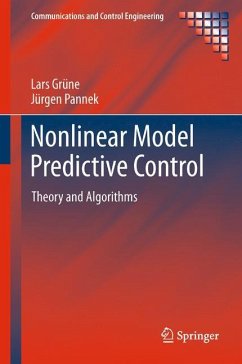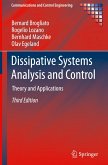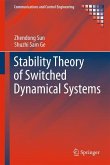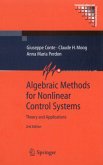Nonlinear Model Predictive Control is a thorough and rigorous introduction to nonlinear model predictive control (NMPC) for discrete-time and sampled-data systems. NMPC is interpreted as an approximation of infinite-horizon optimal control so that important properties like closed-loop stability, inverse optimality and suboptimality can be derived in a uniform manner. These results are complemented by discussions of feasibility and robustness. NMPC schemes with and without stabilizing terminal constraints are detailed and intuitive examples illustrate the performance of different NMPC variants. An introduction to nonlinear optimal control algorithms gives insight into how the nonlinear optimisation routine - the core of any NMPC controller - works. An appendix covering NMPC software and accompanying software in MATLAB® and C++(downloadable from www.springer.com/ISBN) enables readers to perform computer experiments exploring the possibilities and limitations of NMPC.
"The book provides an excellent and extensive treatment of NMPC from a careful introduction to the underlying theory to advanced results. It can be used for independent reading by applied mathematicians, control theoreticians and engineers who desire a rigorous introduction into the NMPC theory. It can also be used as a textbook for a graduate-level university course in NMPC." (Ilya Kolmanovsky, Mathematical Reviews, April, 2015)
"In the monograph nonlinear, discrete-time, finite-dimensional control systems with constant parameters are considered. ... Each chapter of the monograph contains many numerical examples which illustrate the theoretical considerations, several possible extensions and open problems. Moreover, relationships to results on predictive control published in the literature are pointed out." (Jerzy Klamka, Zentralblatt MATH, Vol. 1220, 2011)
"In the monograph nonlinear, discrete-time, finite-dimensional control systems with constant parameters are considered. ... Each chapter of the monograph contains many numerical examples which illustrate the theoretical considerations, several possible extensions and open problems. Moreover, relationships to results on predictive control published in the literature are pointed out." (Jerzy Klamka, Zentralblatt MATH, Vol. 1220, 2011)
From the reviews: "In the monograph nonlinear, discrete-time, finite-dimensional control systems with constant parameters are considered. ... Each chapter of the monograph contains many numerical examples which illustrate the theoretical considerations, several possible extensions and open problems. Moreover, relationships to results on predictive control published in the literature are pointed out." (Jerzy Klamka, Zentralblatt MATH, Vol. 1220, 2011)
"The book is self-contained and its excellent presentation can be highly recommended for students but also researchers new to the topic of model predictive control." (Tobias Breiten, zbMATH 1429.93003, 2020)
From the reviews of the first edition:
"The book provides an excellent and extensive treatment of NMPC from a careful introduction to the underlying theory to advanced results. It can be used for independent reading by applied mathematicians, control theoreticians and engineers who desire a rigorous introduction into the NMPC theory. It can also be used as a textbook for a graduate-level university course in NMPC." (Ilya Kolmanovsky, Mathematical Reviews, April, 2015)
"In the monograph nonlinear, discrete-time, finite-dimensional control systems with constant parameters are considered. ... Each chapter of the monograph contains many numerical examples which illustrate the theoretical considerations, several possible extensions and open problems. Moreover, relationships to results on predictive control published in the literature are pointed out." (Jerzy Klamka, Zentralblatt MATH, Vol. 1220, 2011)
From the reviews of the first edition:
"The book provides an excellent and extensive treatment of NMPC from a careful introduction to the underlying theory to advanced results. It can be used for independent reading by applied mathematicians, control theoreticians and engineers who desire a rigorous introduction into the NMPC theory. It can also be used as a textbook for a graduate-level university course in NMPC." (Ilya Kolmanovsky, Mathematical Reviews, April, 2015)
"In the monograph nonlinear, discrete-time, finite-dimensional control systems with constant parameters are considered. ... Each chapter of the monograph contains many numerical examples which illustrate the theoretical considerations, several possible extensions and open problems. Moreover, relationships to results on predictive control published in the literature are pointed out." (Jerzy Klamka, Zentralblatt MATH, Vol. 1220, 2011)








